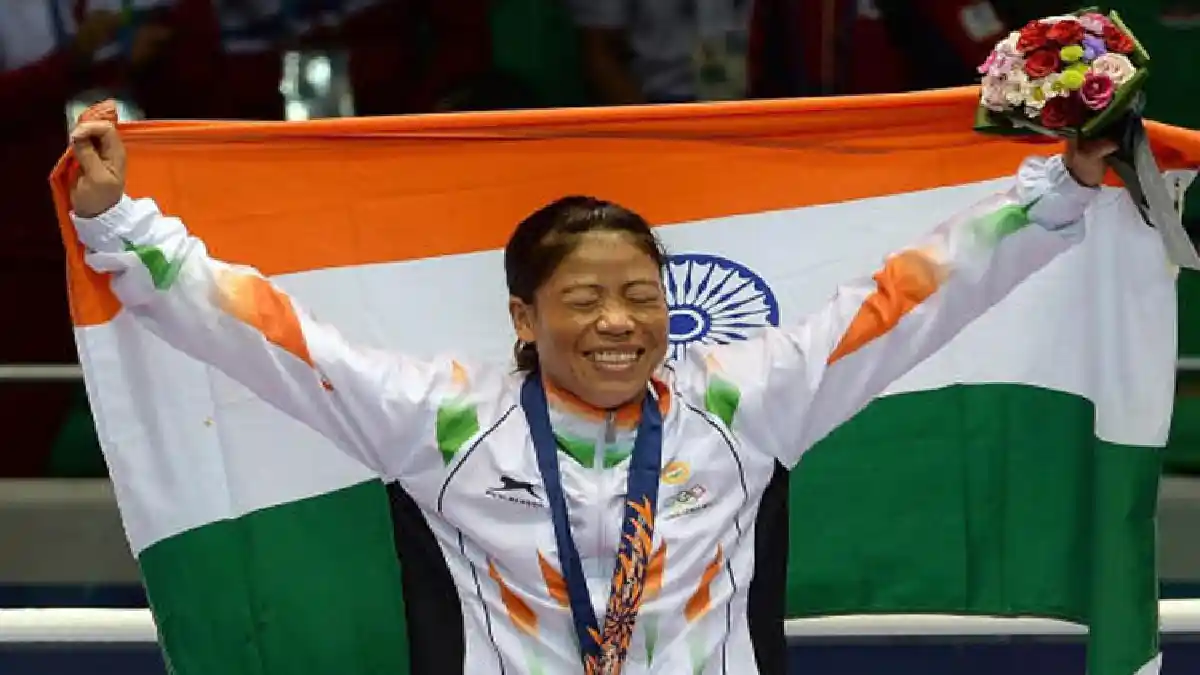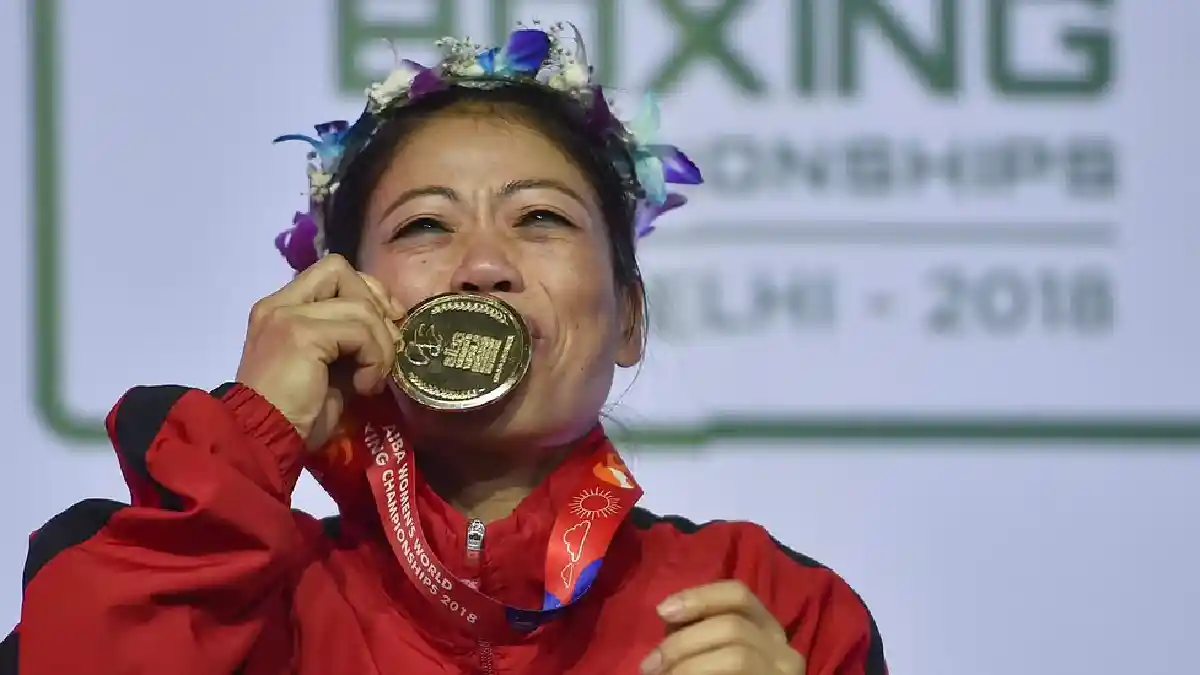Champions are not born, they are self made
This is a story of an ordinary girl from the Kom tribe of Manipur, India, who fearlessly chased her dreams regardless of the obstacles and demonstrated to the world that nothing is bigger than the desire to win by being the first Indian female boxer to win an Olympic medal for her country.

magnificent lady of India, MARY KOM; Image Souce: telegraphindia.com
In a country where women are still fighting for freedom and basic rights, Mary Kom demonstrated what a woman is capable of.
The life of Mangte Chungneijang Mary Kom, known as MC Mary Kom has been no less than a fairy tale. Mary Kom was born on March 1, 1983. She is the eldest daughter of a tenant farmer who struggled to make ends meet by working in 'Jhum' fields. Along with her academics, she spent her childhood helping her parents with farm and domestic tasks. Mary inherited her sense of sportsmanship from her father, who used to wrestle as a child. She was inspired to pursue a career in boxing after witnessing her fellow citizen Dingko Singh win a gold medal for India at the Asian Games.
Her path was not simple, as her neighborhood and parents protested to her intention to pursue boxing, believing that the sport was just for guys.
Mary began training in Imphal and would travel vast distances to learn boxing from Coach K. Kosana Meitei. She left her hometown when she was 15 years old to pursue higher education in Imphal, where she finished her training. In 2000, Mary won the state boxing championship, and her parents were made aware of her training. They resisted at first, but after seeing her incredible performance and learning more about her, they changed their minds.
She was the only boxer to earn a gold medal in each of the six World Championships, winning gold in her weight class (46kg) five times between 2002 and 2010. She earned gold at the Asian Indoor Games in Vietnam and gold at the Asian Boxing Championships in Kazakhstan. In 2010, she won her fifth World Championships title in Barbados.
Mary dominated the boxing ring for several years before retiring from the sport to focus on her family and raising her two children after her marriage. Soon after, rumors circulated that she might not return to the ring, but Mary was confident that her quest for an Olympic medal would not end that way. She made a remarkable comeback in 2010, capturing a silver medal at the Asian Women's Boxing Championships, and went on to add many more medals to her collection, showing to naysayers that there is a big difference between stepping back and quitting.
It was difficult for her to return to her training regimens after having children, but her tremendous desire to win an Olympic medal for her country drove her back to the boxing ring, this time harder than before. Mary punched hard at the AIBA Women's World Boxing Championships in 2012, not just to silence the naysayers, but also to qualify for the Olympics, as women's boxing was introduced that year.
Despite her fame and accomplishment, Mary Kom's journey remains difficult. She is still subjected to discrimination and regional bias at several events, including the Commonwealth Games trials, where she was treated unfairly. This, however, does not deter her from battling. She moves on from her past mistakes and proves her worth in the ring.
After defeating Karolina Michalczuk 19-14 in the opening round, Mary advanced to the quarter-finals, where she defeated Tunisian Maroua Rahali 15-6 to reach the finals. She not only won India's first Olympic medal in female boxing (bronze), but she also received one of the prestigious awards of India the Padma Shri award and Padma Bhusan award in 2006 & 2013 for her achievements.
She is a perfect example of “Champions are not born, they are self-made”. She proved that hurdles can be overcome by dedication only. She made history in Indian sport.

history maker; Image Source: theprint.in


